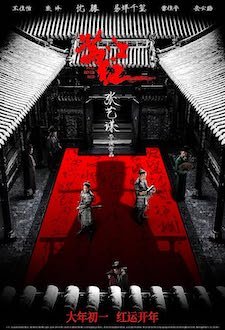Direction: Zhang Yimou
Country: China
Whenever Chinese helmer Zhang Yimou (Raise the Red Lantern, 1991; Hero, 2002; House of the Flying Daggers, 2004) releases a new film, audiences expect dense plots, epic battles, and dazzling visuals. However, his latest venture, the action comedy mystery film Full River Red, delivers some of these elements unevenly and goes overboard with self-indulgent gimmicks. As is often the case, the story is set in an ancient era but this time comes marked by an excess of twists to the point of nausea.
When a Jin diplomat is mysteriously assassinated at the house of Song grand chancellor, Qin Hui (Lei Jiayin), the latter appoints a smart low-ranking soldier, Zhang Da (Shen Teng), and a brave young commander, Sun Jun (Jackson Yee), to solve the case. An important letter is also reported missing, and the conspiracy seems much bigger than initially thought.
Failing to ramp up the drama of things, Yimou adopts a jocular tone that, never fully committing, leaves the film feeling dull. The investigation runs out of steam too early, mired by a convoluted plot that falls into repetitive patterns. It’s hard to see past the glossy surface here, so fans seeking interesting characters should look elsewhere. Moreover, the music playing in the chapter transitions is detestable, and each action scene, sly as it tries to be, feels artificial and terribly monotonous.
More corny than enthralling, and constantly overacted, Full River Red fails to emotionally invest the audience in the narrative. Lamentably, Yimou didn’t put enough effort into this one to provoke or engage the viewer.







